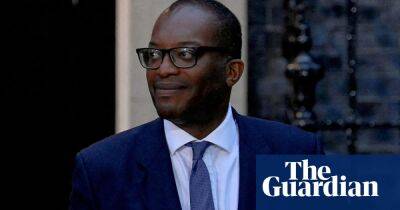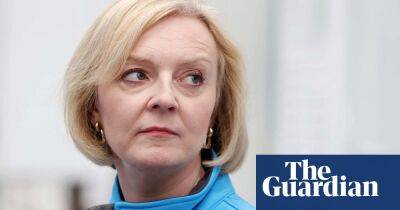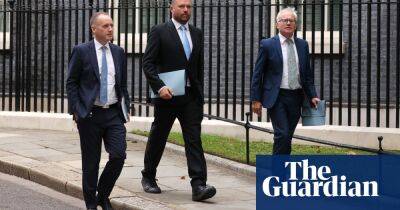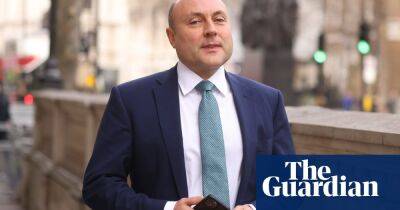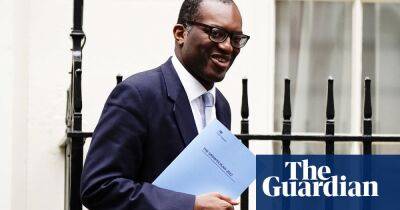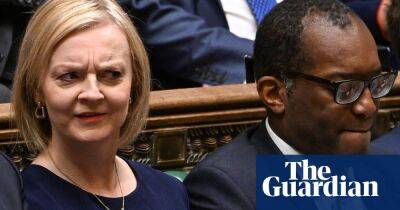How Kwasi Kwarteng’s mini-budget hit UK economy – in numbers
It’s been a week since the chancellor, Kwasi Kwarteng, delivered his “fiscal event”, heralding “a new approach for a new era” that left the Daily Mail cooing: “At last! A true Tory budget.”
The impact of which has been devastating, with even the Tory-supporting Economist saying the government’s reckless incompetence may have already damaged it “beyond repair”. Here we look at the key figures that defined one of the worst probation periods in history.
The Bank of England triggered an emergency £65bn bond-buying programme on Wednesday to stem the crisis triggered by Liz Truss and Kwarteng’s growth plan, which put entire pension funds at risk of insolvency.
The yields on 10-year gilts – UK government bonds – surged after Kwarteng’s Friday announcement, rising from 3.5% to 4.3% before falling back to about 3.5% on Friday after the Bank of England’s intervention. Yields are effectively the cost of borrowing to an issuer, in this case the UK government. Rising bond yields suggest a lack of willingness among investors to own the debt, as buyers demand a lower price to buy them.
The British Retail Consortium revealed food price inflation surged again to 10.6%, compared with an already staggering 9.3% last month.
The FTSE 100 has fallen by about 232 points since last Friday as jittery investors took flight.
Labour holds a 33-point lead over the Conservatives, according to a poll from YouGov. It is thought to be the largest poll lead held by a political party since the late 1990s. Labour is widely considered to have enjoyed a successful party conference, where it announced plans to form a publicly owned green energy company called Great British Energy.
The pound fell to a record low of 1.03 against the US dollar on Monday after Kwarteng
Read more on theguardian.com








